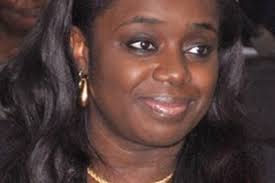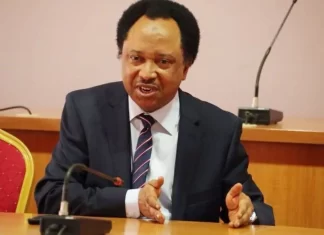Nigeria can no longer afford to continue borrowing to fund its budget and must seek alternative fundraising mechanisms, Finance Minister Kemi Adeosun said on Tuesday.
Speaking at the quarterly presidential business forum in Abuja, Mrs. Adeosun said Nigeria should continue to diversify its economy to enable it generate more revenue to fund its budget.
“We need to mobilise additional revenue to fund our budget,” she said.
“We have got to get our budget bigger and to do that we cannot borrow anymore. We simply have to generate more revenue, we have to plug the leakages, we have to improve tax collection so that we can manage our borrowing.”
Speaking further on diversification, the minister said, “The problem is that we have been relying on oil and oil gave us a big budget size,” she said.
“It’s just one of our resources and as you know it’s only 10 per cent of our GDP. So, the rest of our economy – 90 per cent – really has to contribute to our revenue.
For two years running, Nigeria has pursued foreign loans in order to meet her record-high annual appropriation. Nigeria has been in talks with the World Bank and the African Development Bank to take at least $2 billion in loans; with another $1.5 billion slated to be sourced from international borrowers, Reuters reports
In a separate effort that now appeared to have stalled, President Muhammadu Buhari also proposed a massive borrowing of up to $30 billion to finance major infrastructure projects across the country.
Lawmakers sceptical about the proposal expressed fears that it might not be favourable to the country in the long run, especially as the administration presented no clear plans of how it will utilise the loan.
Within this period, Mrs. Adeosun remained one of the most vocal proponents of external borrowing, using the lingering economic recession as a justification.
In May, the Finance Minister said Nigeria cannot afford to wait for recovered loot, thus justifying the borrowings.
“We cannot afford to rely on recovered loots to fund our budget, we have to go on short term borrowing,” she said. “What borrowing does for us is that it gives us flexibility because if we recover a lot from looted funds, we can always pay back.”
The N7.44 trillion 2017 budget has a deficit of N2.21 trillion indicating about 29 per cent of the budget is to be funded through loans, foreign and domestic.
On Tuesday, the minister also spoke on the benefits of the recently introduced Voluntary Assets and Income Declaration Scheme, VAIDS.
She said it “is aimed at improving revenue collection rate and generally improving domestic revenue mobilisation so that we can fund our budget sustainably.’’
The minister described as encouraging the response of Nigerians to the inauguration of VAIDS.
She expressed the hope that the Buhari administration would reposition Nigeria to the level that “we will not be so vulnerable as we have been in the past to oil price movements’’.
In his speech at the event, Acting President Yemi Osinbajo said the Muhammadu Buhari administration is committed to reviving the Nigerian economy within the next 18 months.
Osinbajo said the administration was determined to deliver on its promises to the electorate.
The acting president, who said that Nigeria was fortunate to have a leader in President Buhari, added that the administration would continue to ensure that public funds were spent efficiently.
“And I have said this repeatedly, that in some sense we are fortunate to have a leader like the president who at least we know, a straightforward and honest, and committed to ensuring government expenditure is spent the way it should be spent, and that people don’t do what they like.
“To that extent, I think we have the right environment at least in terms of government discipline and all of that, to be able to deliver on the promises that we have made.
“But, do not doubt for one moment at all, our commitment to ensuring that we are able to deliver on the promises that we have made.
“Day after day, night after night we are working on these things. Practically every night we work on these issues. I believe very strongly that Nigeria will turn around.
“I have no doubt in my mind that if we are focused even in the next 12 to 18 months, if we are focused we will certainly see a turn around.’’
He, therefore, advised the private sector to partner with the government to achieve the set target
The Minister of Power, Works, and Housing, Babatunda Fashola, who also spoke at the event, stated that the government’s focus has been on how to ease doing business, enable the private sector to be the best it could be to compete and be efficient locally and globally.
“The private sector has always been in any economy with a capital disposition, the driver of growth, the driver of development and ultimately government must interface with the private sector,” he said.
“We want to hear from them where the shoes pinch most, where we can make it easier; where we can make it better and how we can do so.
“And it is only by understanding the problems that we can then offer quality solutions which will include executive actions, sometimes legislative actions, sometimes judicial interventions as a mixture of government’s policy options to help private sector do its best.’’















